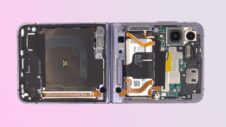Apple and Samsung have been fighting a patent infringement battle in court for a few years now and the matter is far from done, if recent moves are any indication both companies are willing to see the matter through to the end and don't appear to be under pressure to settle this as soon as possible. There have been victories and losses on both sides and this week it's Apple that scores a victory, today an appeals court in the United States ruled that Samsung should have been banned from incorporating several patented Apple features in its devices and that the lower court erred when it did not do so.
It was determined by a jury in May last year that Samsung had infringed on three Apple patents, one related to quick links, slide-to-unlock and one for auto word correction. Apple had then moved the court to ban Samsung's products which had those patented features but the judge said that monetary damages were enough to make up for the harm done to Apple. It was a ruling that the US Court of Appeals for the Federal Circuit can't get behind. “The right to exclude competitors from using one's property rights is important,” Judge Kimberly A. Moore writes in the majority opinion. “And the right to maintain exclusivity — a hallmark and crucial guarantee of patent rights deriving from the Constitution itself — is likewise important.” That ruling has now been vacated by the higher court and sent back to the lower court for reconsideration.
If Apple's motion to ban devices is granted then Samsung might have to change certain things about smartphones and tablets that have features that infringe on Apple patents. However given that most of those devices are no longer being sold anyway a ban wouldn't really do much good now, Samsung has already said that there's just one current device now that uses a feature from an Apple patent involved in this case. Samsung isn't going to accept this quietly though, it is going to have the full Court of Appeals review today's decision, adding that “We want to reassure our millions of loyal customers that all of our flagship smartphones, which are wanted and loved by American consumers, will remain for sale and available for customer service support in the US.”






